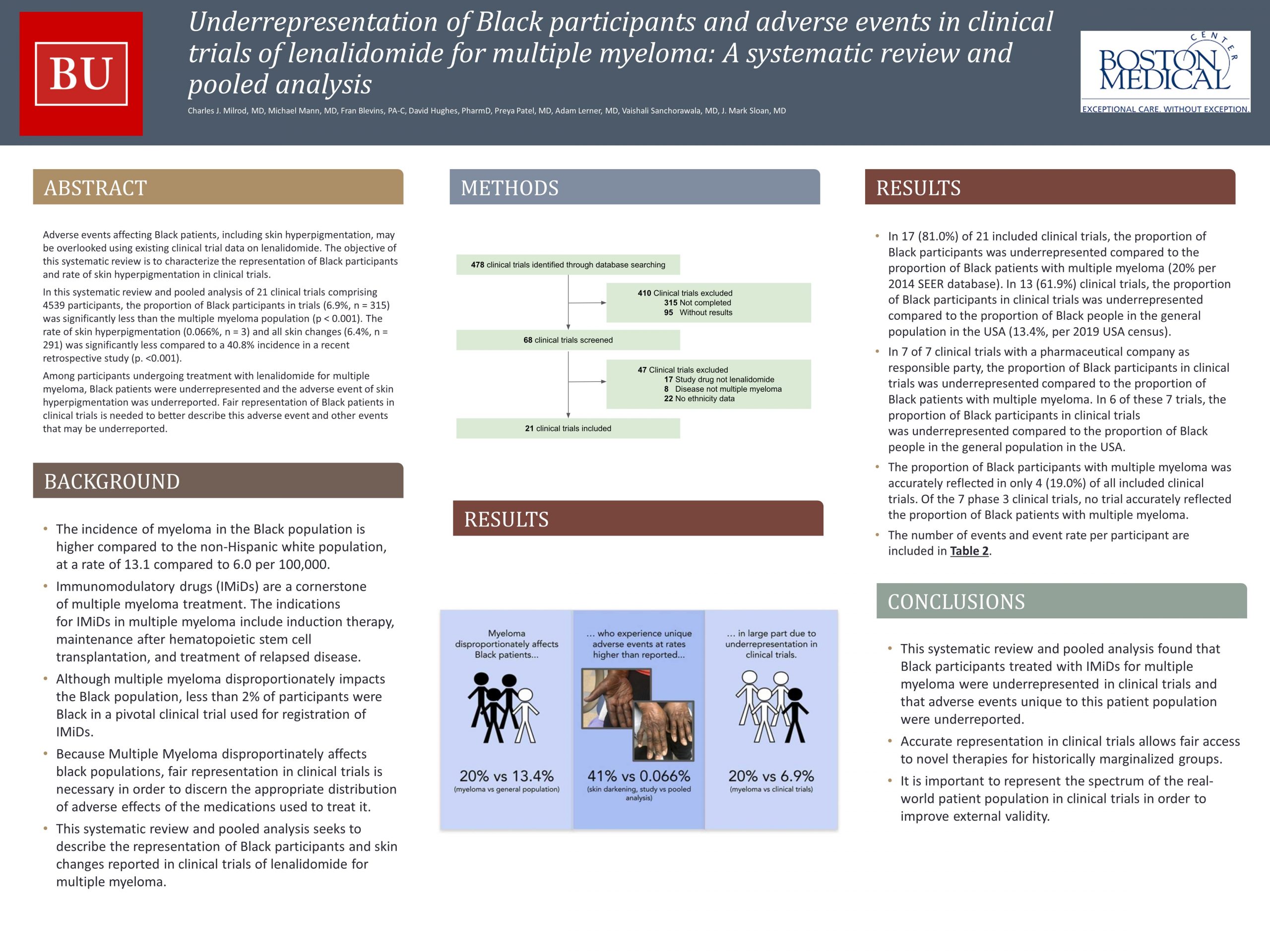Research Week 2022 – Michael Mann, MD

Charles J Milrod 1 , Michael Mann 1 , Frances Blevins 2, David Hughes 3 , Preya Patel 4 , Katie Y Li 1, Adam Lerner 2, Vaishali Sanchorawala 2, J Mark Sloan 2
- 1 Department of Medicine, Boston University School of Medicine and Boston Medical Center, Boston, MA 02118, USA.
- 2 Section of Hematology & Medical Oncology, Department of Medicine, Boston University School of Medicine and Boston Medical Center, Boston, MA 02118, USA.
- 3 Section of Hematology & Medical Oncology, Department of Medicine, Boston University School of Medicine and Boston Medical Center, Boston, MA 02118, USA; Department of Pharmacy, Boston Medical Center, Boston, MA 02118, USA.
- 4 Boston University School of Medicine, Boston, MA 02118, USA.
Introduction/Rationale: Adverse events affecting Black patients, including skin hyperpigmentation, may be overlooked using existing clinical trial data on lenalidomide. The objective of this systematic review is to characterize the representation of Black participants and rate of skin hyperpigmentation in clinical trials.
Methods/Results: In this systematic review and pooled analysis of 21 clinical trials comprising 4539 participants, the proportion of Black participants in trials (6.9%, n = 315) was significantly less than the multiple myeloma population (p < 0.001). The rate of skin hyperpigmentation (0.066%, n = 3) and all skin changes (6.4%, n = 291) was significantly less compared to a 40.8% incidence in a recent retrospective study (p. <0.001).
Conclusion: Among participants undergoing treatment with lenalidomide for multiple myeloma, Black patients were underrepresented and the adverse event of skin hyperpigmentation was underreported. Fair representation of Black patients in clinical trials is needed to better describe this adverse event and other events that may be underreported.